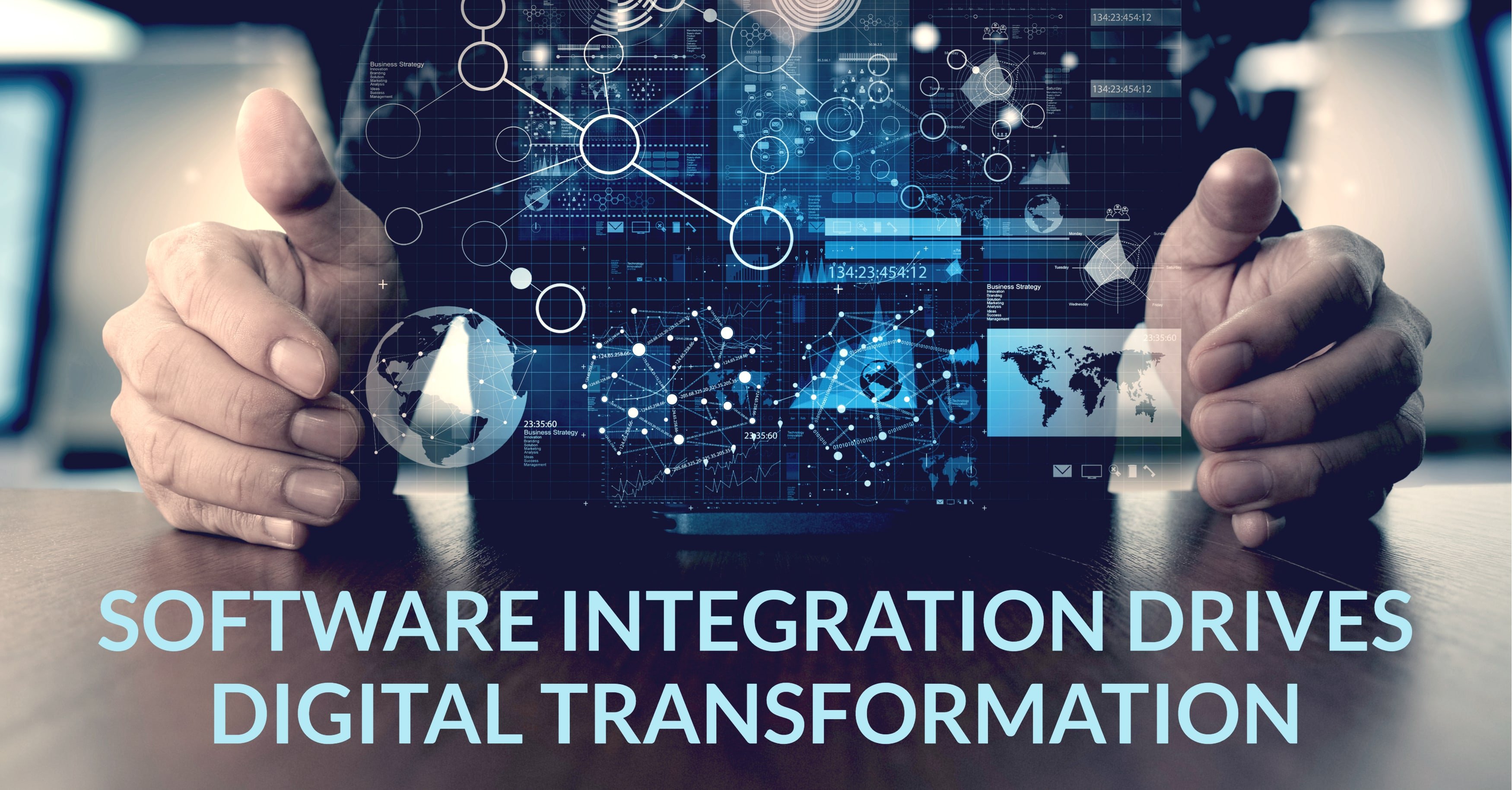Transform Your Business with ERP Integration
A survey of 900 IT decision-makers found that systems integration is rapidly becoming a priority among modern enterprises. 88% of respondents believe that becoming a more connected business will drive revenue. Additionally, the level of enterprise connectivity is expected to reach 78% by 2020, up from 41% in 2014.
The growing focus on systems integration goes hand in hand with the rising interest in digital transformation. In a 2018 study conducted by Gartner, CIOs ranked digital transformation among the top three business priorities. Businesses around the world, particularly in discrete manufacturing industries, are dedicating more resources than ever to innovative technology.
Connectivity is at the center of digital transformation efforts, as enterprises strive to align their applications with each other to increase efficiency and generate insights. That makes integrating your software a critical component of your digital transformation strategy. Connecting ERP with CRM, Marketing Automation or eCommerce software creates a 360-degree view of operations and customers, allowing your business to work smarter and faster. Read on to learn how to transform your business with ERP integration.
Workflow Automation
Software systems enable users to automate repetitive processes, streamlining workflows in multiple departments, including sales, accounting and production. The problem is that they aren’t necessarily streamlining workflows between departments. Businesses operating from multiple applications often experience gaps in their processes that hurt their productivity.
ERP integration works to eradicate data silos, so tasks flow smoothly from one end of your enterprise to the other. An integration syncs data back and forth between your platforms. This allows operations to run seamlessly. Rather than manually enter data, your integration will automatically transfer orders, invoices, shipments and more, enabling processes to move forward without interruption.
A core tenet of digital transformation is to simplify and automate tedious processes to give users time to focus on value-added tasks. The level of workflow automation powered by software integration maximizes efficiency, so you can spend time on driving critical enterprise improvements.
Customer-Centric Processes
Customer experiences are taking center stage across enterprises and serve as the focal point of many digital transformation initiatives. CRM vendors have capitalized on cutting-edge technology to drive deeper consumer insights. Microsoft Dynamics 365 CRM and Salesforce have both invested in AI tools and sophisticated data analytics to make front offices smarter and more proactive.
But businesses can only provide top-notch customer experiences when they’ve integrated their software. An integration enables users to access whatever data they need to optimize buyer’s journeys. Sales teams, for example, can instantly look up inventory levels and pricing to give prospects precise information. Production managers can use customer data for accurate demand planning and forecasting. Order processing and delivery is faster and more transparent when data travels between your platforms, resulting in rapid lead times and happier customers. Integrating ERP with front-office systems empowers your organization to take a customer-centric approach that’ll boost your revenue.
Data-Driven Decisions
The power of systems integration really comes down to one thing: data management. Data is essential for driving decisions in modern enterprises, but businesses can’t fully capitalize on information when it is siloed across several platforms. Manufacturers and distributors spend inordinate amounts of time entering data, searching for data and interpreting data when they lack an integration solution. By connecting ERP with front-office software, users can locate whatever information they need in a matter of seconds and stop keying in data across multiple systems. This makes decision making faster and easier.
ERP integration also improves data integrity, so you’re only designing strategies based on precise metrics. We’ve all hit the wrong key now and again on our computers, but this mistake could create a lot of headaches when dealing with customer addresses, pricing, product quantity and other sets of information that must be completely accurate. Software integration means no more duplicate entries, as any new entries or modifications are reflected across your platforms.
Additionally, an integration allows employees to use familiar applications. You can’t expect a sales rep to effectively navigate an ERP solution, which is more complex than CRM and other front-office systems. When users try to perform tasks or find information in a completely unfamiliar platform, they’re liable to hit the wrong buttons or enter incorrect data, compromising the performance of your software. This is no longer a problem with software integration, as users have the information they need in the platform they utilize every day.
Wrap Up
Digital transformation isn’t just some trendy buzzword. Manufacturers and distributors across the globe are taking advantage of innovative solutions to optimize their performance. If you wait too long to upgrade your IT infrastructure, you’ll find opportunities and deals slipping through your fingers.
With our Unity integration solution, digital transformation is easier than ever. Leveraging decades of software expertise, Datix designed Unity to seamlessly connect Epicor with CRM, eCommerce or Marketing Automation software. Our consultants rapidly install the solution, so you can enjoy two-way data synchronization in no time. Once it’s deployed, we’ll manage your integration to ensure it drives value for years to come.
Scalable and hassle-free, Unity allows businesses of all sizes to pursue digital transformation. Get in touch with Datix today to start forming your connected enterprise!
{{cta(‘770c1544-d87d-4acb-9fc4-7a25e1385094′,’justifycenter’)}}



